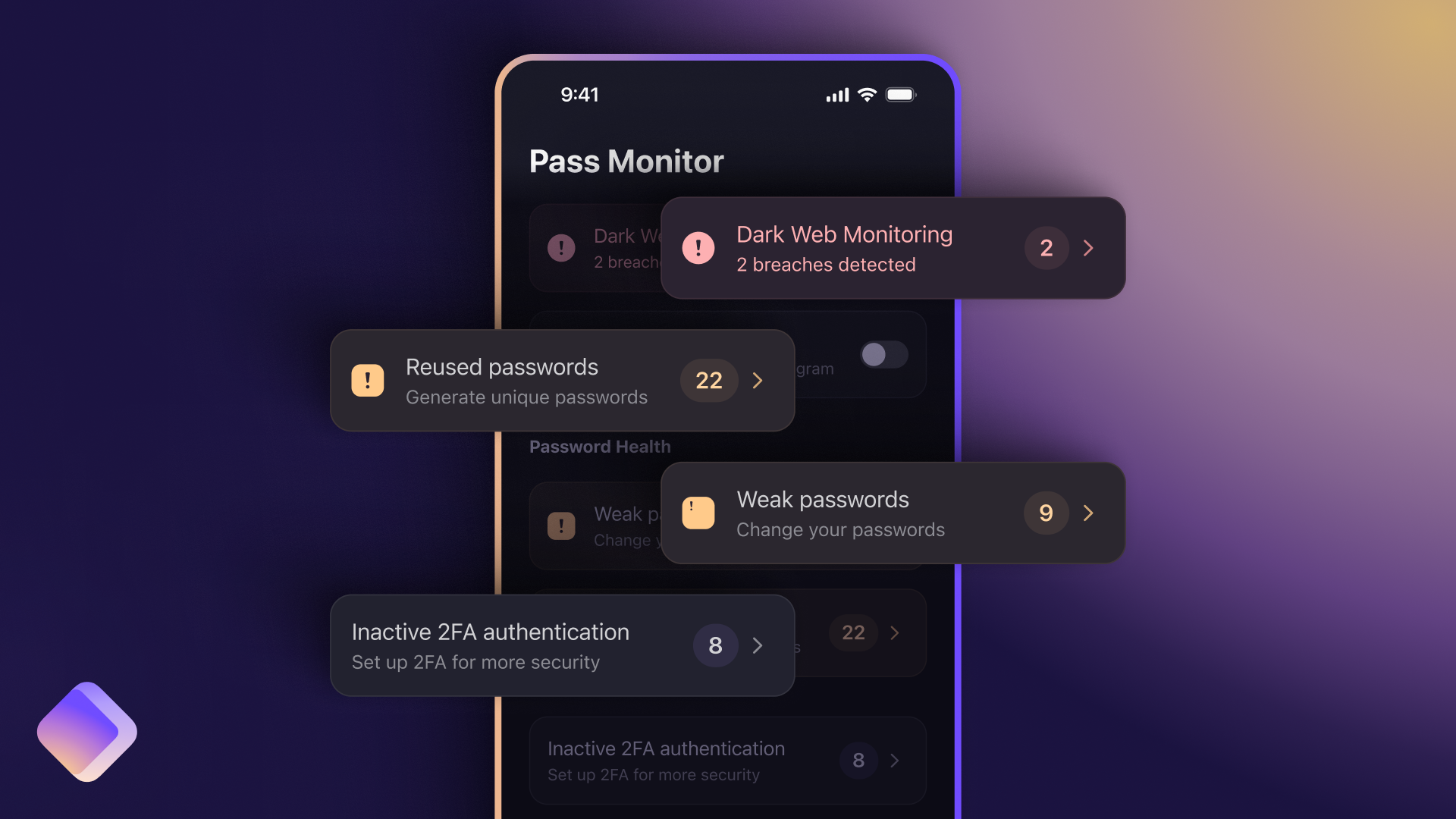Proton Pass launches new Pass Monitor security suite
Pass Monitor wants to keep your credentials off the dark web

Sign up for breaking news, reviews, opinion, top tech deals, and more.
You are now subscribed
Your newsletter sign-up was successful
Proton, the privacy and security company behind the Proton Pass password manager, has unveiled its entry into the world of dark web monitoring and password health analytics.
The new Pass Monitor tool promises to help customers stay on top of their credentials by alerting them as soon as any stolen passwords show up on the dark web, as well as providing strength feedback and notification of accounts without any multi-factor authentication.
Customers on the best plans will be able to combine the dark web monitoring recently launched in Proton Mail with access to Proton Sentinel, allowing users to know when their account is at risk, and helping to protect it if an attacker steals your details.
Password empowerment
Pass Monitor provides detection mechanisms for weak passwords that could be easily brute forced by an attacker, and will notify you of reused passwords which, if leaked, could result in multiple account compromises - highlighting the need for proper password hygiene.
“Proton Pass was developed to make robust security accessible to everyone, and with the introduction of Pass Monitor, we're elevating that commitment," says Son Nguyen, Director of Product at Proton.
"Pass Monitor allows users to evaluate the security status of their online credentials and provides immediate alerts if their data is compromised. This proactive approach is crucial for preparing our users against the inevitable phishing attacks that follow such breaches, ensuring that their digital identities are protected across all fronts"
With the recent developments threat actors have made in social engineering for phishing campaigns, just one successful email could bring your entire online identity tumbling down. Proton Monitor therefore provides users with the option to create a unique address for every account, stopping attackers from obtaining your real email address.
Sign up to the TechRadar Pro newsletter to get all the top news, opinion, features and guidance your business needs to succeed!
While dark web monitoring is only available to customers on a paid plan, all Proton Pass users will have access to Pass Monitor with its password health functions.
More from TechRadar Pro
- Take a look at our guide to the best antivirus offerings around today
- NordVPN releases B2B offering
- Lose that pesky virus using the best malware removal

Benedict has been with TechRadar Pro for over two years, and has specialized in writing about cybersecurity, threat intelligence, and B2B security solutions. His coverage explores the critical areas of national security, including state-sponsored threat actors, APT groups, critical infrastructure, and social engineering.
Benedict holds an MA (Distinction) in Security, Intelligence, and Diplomacy from the Centre for Security and Intelligence Studies at the University of Buckingham, providing him with a strong academic foundation for his reporting on geopolitics, threat intelligence, and cyber-warfare.
Prior to his postgraduate studies, Benedict earned a BA in Politics with Journalism, providing him with the skills to translate complex political and security issues into comprehensible copy.